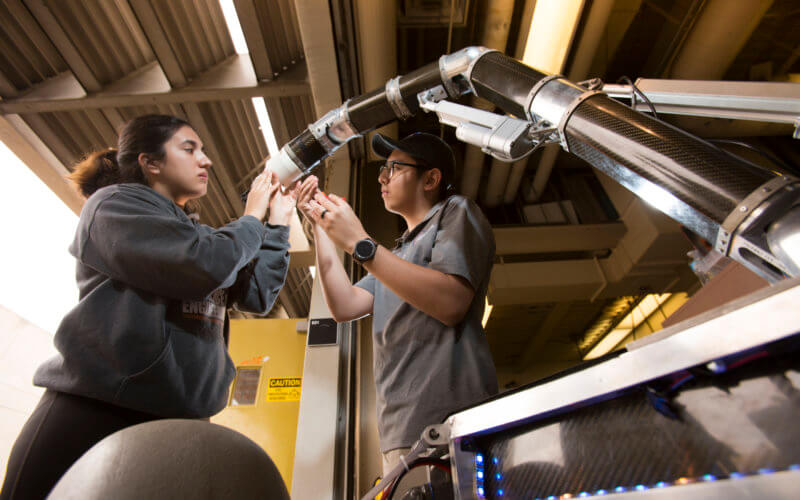
Over the summer, 50 Cal State Fullerton students conducted research on a wide range of topics, including the effects of sleep proximity on language/speech, creating curriculum and teaching women in prison, use of 3D printed aligners for application in dentistry, looking at racial disparities in certain types of cancer, distrust in the pandemic response, multiple projects focused on science and health, and many more.
“We know that students who work on research projects as undergraduates are more likely to earn a bachelor’s degree and beyond,” said Binod Tiwari, associate vice president for research and sponsored projects and professor of civil and environmental engineering. “One of the ways to encourage our undergraduate students and show them what they’re capable of, was to institute the Summer Undergraduate Research Academy.”
While many universities focus on research programs and mentoring, they tend to zero in on graduate students. Faculty at Cal State Fullerton wanted to provide the same opportunities — a chance to learn, challenge themselves and make discoveries — to undergraduates. The academy (SUReA) provides that opportunity, according to its organizers.
“SUReA is a universitywide, inclusive funding program that engages undergraduates in research with faculty from every college and the library as mentors,” said Terri Patchen, SUReA director, professor of elementary and bilingual education, and faculty fellow for student creative activities and research. “Undergraduate students are deeply involved in a range of disciplinary practices under the guidance of faculty mentors: conducting literature reviews; creating and developing arts projects: transcribing, translating, coding or analyzing data; determining key findings; and/or drafting research papers.”
“Students who work on research projects as undergraduates are more likely to earn a bachelor’s degree and beyond.”
– Binod Tiwari, associate vice president for research and sponsored projects
Last month, 50 SUReA students presented a poster at the SUReA Conference, either individually or as part of a two-student team.
“The goal of SUReA is to provide faculty and students with the freedom to develop aspects of their research or arts projects that advance their scholarly agendas while teaching valuable skills. For many students and faculty alike, this is a unique and special experience, one in which institutional recognition for the value of their work is matched with institutional support,” said Patchen.